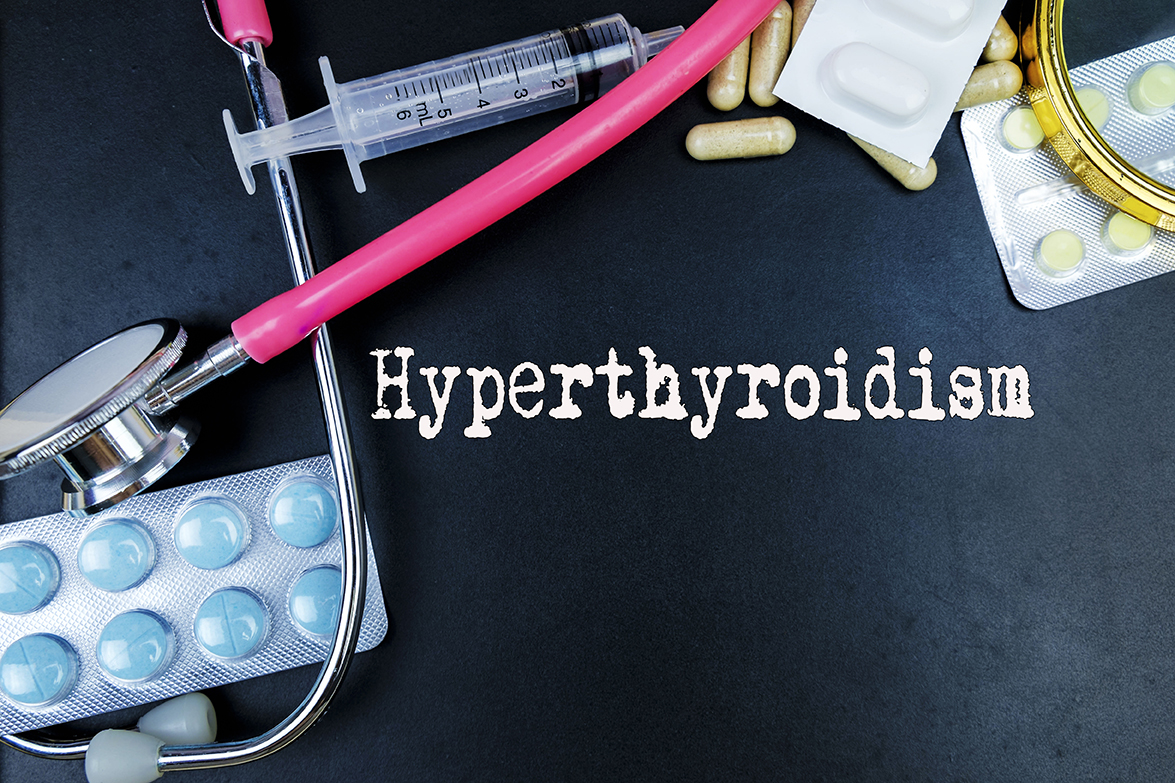What is Hyperthyroidism?
Hyperthyroidism is a set of diseases that is characterized by overactive thyroid glands. In these conditions, the thyroid glands produce excessive amounts of thyroid hormones leading to several complications.
Hyperthyroidism leads to increased metabolic rate, and can be caused due to various reasons. Since thyroid hormones are responsible for various vital body functions, hyperthyroidism leads to increased protein synthesis, increased metabolism, and irregular heart rate among other overactive thyroid symptoms. Hyperthyroidism is treated by endocrinologists.
What are the causes of hyperthyroidism?
A person can have an overactive thyroid gland due to various reasons. However, everyone with hyperthyroidism experience what is called thyrotoxicosis. In this condition, TSH levels are low as the pituitary glands sense a high amount of thyroid hormones in the body.
Hyperthyroidism is caused due to:
- Autoimmune thyroid diseases like Graves’ disease
- Presence of multinodular goiter (enlarged thyroid)
- Thyroiditis
- Excessive iodine consumption – iodine-induced hyperthyroidism
- Thyroid cancer
- Too much thyroid medication
- Conditions of the pituitary glands leading to increased TSH level
- Drug-induced hyperthyroidism
Auto-immune thyroid disease
In this condition, immune system of the body attacks the thyroid gland leading to an excessive production of thyroid hormones. Graves’ disease is a very common type of autoimmune thyroid disease. Graves’ disease leads to enlarged thyroid glands, Graves’ ophthalmopathy (a condition where the eyes seem to bulge out), and infiltrative dermopathy.
Multinodular Goiter
Having enlarged thyroid gland is known as goiter. Having a goiter with multiple nodules is called multinodular goiter. Multinodular goiters in some cases are non-toxic. In this condition, there is no excessive production of thyroid hormones. However, in some cases, multinodular goiters can be toxic. In this condition, they cause overactive thyroid leading to excessive production of thyroid hormones.
Multinodular goiters are caused due to iodine deficiency, genetic factors, and having a history of autoimmune thyroid diseases and multinodular goiters. Toxic multinodular goiter that causes overactive thyroid glands lead to hyperthyroidism and are also known to cause thyroid cancer. It is treated with surgery, medication, and radioactive iodine therapy.
Thyroiditis
Thyroiditis is a condition that causes inflammation of the thyroid glands. There are different types of thyroiditis. While Hashimoto’s thyroiditis is caused due to autoimmune thyroid disease, subacute thyroiditis and acute thyroiditis is caused due to infections. Postpartum thyroiditis occurs in women after pregnancy and drug-induced thyroiditis is caused as a side-effect of certain medications.
Iodine-induced hyperthyroidism
In this condition, people have overactive thyroid glands due to excess exposure to iodine. Since iodine is vital for the synthesis of thyroid hormones, excess iodine consumption leads to iodine-induced hyperthyroidism. People consume excess iodine either through inappropriate dosage of iodine supplementation, medications like amiodarone, high intake of seaweed, and certain vitamins. This condition is generally resolved by restricting iodine intake as prescribed by an endocrinologist.
Thyroid cancer
Enlarged thyroid glands can either be benign or metastatic. Enlargement of the thyroid glands can occur due to a diffuse goiter which means that the whole thyroid gland has an enlargement. Enlargement can also be of nodular nature wherein the thyroid gland develops nodules. Some of these nodules cause the thyroid gland to produce excessive T3 & T4.
Thyroid nodules can also be cancerous. While fluid-filled cysts (nodules) are generally benign, solid nodules are more likely to be cancerous. These occur in the form of adenomas. Thyroid cancers are of different types:
- Papillary cancer
- Follicular cancer
- Hurthle cell cancer
- Medullary thyroid cancer
- Anaplastic thyroid cancer
The presence of a nodule that causes an overactive thyroid gland should be evaluated for the risk of malignancy.
Excessive thyroid medication
People who are under thyroid hormone replacement therapy are sometimes prone to get hyperthyroidism due to overmedication. Such people should get a review thyroid function test and get their medication dosage adjusted by consulting an endocrinologist.
Pituitary gland conditions and hyperthyroidism
Certain pituitary gland conditions are known to cause overactive thyroid glands. Pituitary tumors (abnormal growth in the pituitary gland) are known to cause hyperthyroidism. Moreover, certain pituitary cancers are also known to increase the production of TSH. With increased TSH level, there is enlarged thyroid gland and hyperthyroidism. So, people having hyperthyroidism are also likely to have underlying pituitary gland conditions.
Drug-induced hyperthyroidism
Usage of certain medications is known to cause overactive thyroid glands leading to hyperthyroidism. These medications interfere with the biochemical processes of the thyroid glands and leads to both hypothyroidism and hyperthyroidism. Medications like amiodarone, interferon-alpha induce hyperthyroidism. Certain antidepressants are also known to cause hyperthyroidism.












